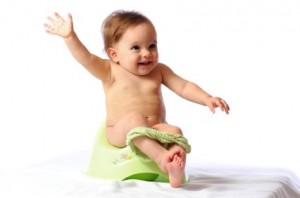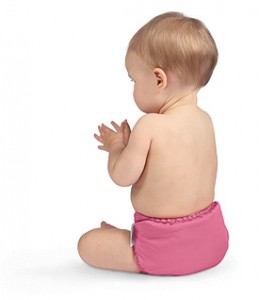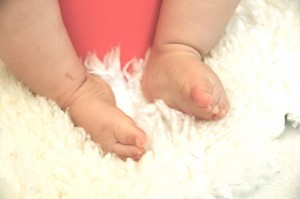 This post was original written for “The Survival Guide for Rookie Moms” last May.
This post was original written for “The Survival Guide for Rookie Moms” last May.
I stumbled upon Elimination Communication (EC) when I was pregnant. The minute I realised that there was an alternative to years of changing diapers I was sold. Ironically EC is considered to be a controversial stance in infant hygiene although it is far from new and it is practiced by billions all over the world. They don’t have diapers in most countries outside the industrialized world!
Not everyone will understand!
When I mentioned EC to my friends the usual response was “What?” and some had fairly strong views on the subject:
“babies are not aware enough to understand what’s going on”
“children should not be potty trained until they are old enough to be interested in it”
or my favourite “I simply don’t have time to sit around watching my baby for signs that it needs to pee”.
Even my pediatrician told me that babies are incontinent until the age of 18months at the earliest.
What is Elimination Communication (EC)?
Described as a toilet training practice, “Elimination Communication (EC) is when a caregiver uses timing, signals, cues, and intuition to address an infant’s need to eliminate waste”
Basically, you tune into the rhythm of your baby’s need to pee or poop – usually babies need to eliminate 10 minutes after a feed or upon waking so that’s when you whip off their diaper and put them on the potty, over a bowl, over the toilet, in the garden – whatever works for you.
Isn’t it just potty training?
Yes and no. Babies are born with the instinct not to soil themselves and we actuallytrain them to pee and poop in a diaper and then we un-train them to go in the potty/toilet years later.
Through EC your baby starts to become aware of their need to eliminate and will start to let you know when they need to go.
So, when did we start Elimination Communication?
We started EC when Baby in Provence (BiP) was 3 months old. I bought a potty and held her over it 10 minutes after her last feed which was roughly about the time when she would usually pee.
I cued her by making the sound “Psst-psst” and a minute later she peed. I was sold. The day I caught her first poop in the potty I was elated. So was she! She hated being wet so it was a win win!
We take each day as it comes. It is not a competition. I don’t get upset about the misses. We celebrate each catch in the beginning and go with that. Some days BiP never makes it to the potty and that is absolutely fine. Life is stressful enough without adding to it.
What are the benefits of EC?
There are loads of benefits to EC. Too many to list here. For us it was simple. BiP hated being wet so she screamed everytime she peed so we went through masses of diapers so through EC we saved the crying and the diapers! It is much cleaner when they poop. We still have the same tube of diaper rash cream from when she was born as she almost never has diaper rash. I’ve read that it can help prevent UTI’s, thrush and other skin problems. Also the traditional method of potty training will be a stage you will probably sail through.
What are the downsides?
Like everything there are downsides! Once BiP got used to the feeling of pooping outside her diaper she would go crazy if I was missing her signal to go. If I did miss a poop she would cry inconsolably whilst I cleaned her up.
One time we were out and she refused to go in her diaper so I cued her in a car park – she pooped and was happy – I wasn’t. If your baby decides that they want to go when the diaper is off you can face problems when you are out.
Elimination Communication for Everyone
Everyone can do EC. It’s not exclusively for stay at home mothers. You can practice it full time, part time or occasionally – there are no hard and fast rules. It has to be something you can fit into your everyday life. I do encourage everyone to try it before they knock it. Now we’ve been doing it for 1 year and I can’t imagine having done anything differently.
Are you interested in practising Elimination Communication? Are you ECing your baby? What tips can you share?
 BiP just celebrated her 2nd birthday.
BiP just celebrated her 2nd birthday.
 This post was original written for
This post was original written for  We’ve had a great Elimination Communication journey with BiP to date – we’ve had some impressive times when it’s
We’ve had a great Elimination Communication journey with BiP to date – we’ve had some impressive times when it’s 

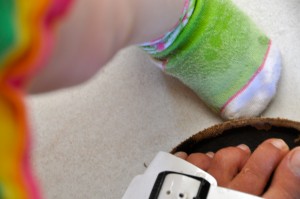
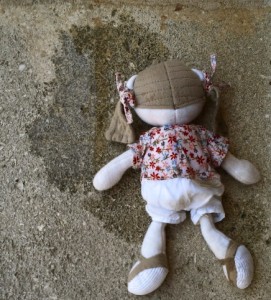
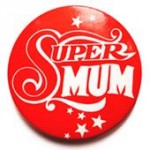 Now, how many women have been made to feel that they should be banished for having an elective c-section or an epidural or even worse, AN INDUCTION? Who’s been made to feel bad that they selected to deliver in a hospital rather than have a home birth? How many have been made to feel they should apologise because they haven’t breastfed because they needed medication to deal with the aftermath of childbirth or because they just didn’t want to? Hands up. Be honest. Is the first year of motherhood a popularity contest?
Now, how many women have been made to feel that they should be banished for having an elective c-section or an epidural or even worse, AN INDUCTION? Who’s been made to feel bad that they selected to deliver in a hospital rather than have a home birth? How many have been made to feel they should apologise because they haven’t breastfed because they needed medication to deal with the aftermath of childbirth or because they just didn’t want to? Hands up. Be honest. Is the first year of motherhood a popularity contest?